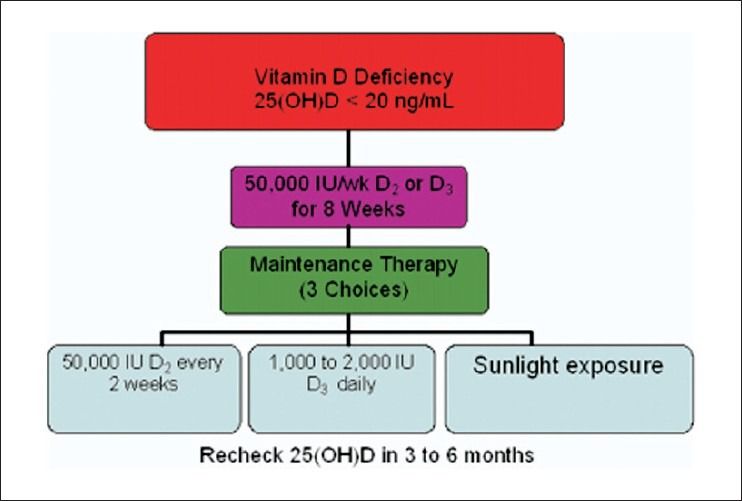
Vitamin D and Periodontal Disease
 Vitamin D is the sunshine vitamin. The predominant way we obtain it is through exposure to natural sunlight, however there are some foods that do contain it when enriched. Many of us suffer from Vitamin B deficiency where we live, in Buffalo, NY, but it is actually quite prevalent, present in 30-50% of the US population, and reaching epidemic proportions of 1 billion people regarded as insufficient or deficient, worldwide, in this important vitamin (Source). Vitamin D deficiency has a higher prevalence in those with darker skin, due to difficulty in absorbing sunlight. Vitamin D deficiency is actually quite common. It has been long thought of as sunshine vitamin, and associated with the disease rickets, a disease where one’s bones don’t properly mineralize, leading to soft and weakened bone tissue. Vitamin D works in concert with calcium. In order for calcium to be properly absorbed by the body, you need to have Vitamin D. This is why, when we speak of overall health, we cannot isolate one nutrient from the other. Calcium provides the strength for bone health and construction. Without Vitamin D, this doesn’t happen effectively. Proper bone health is needed to keep your teeth anchored in your jaw. With poor structure, your jaw cannot hold the teeth in place. While this would make sense as to why those with poor bone health would be more prone to tooth loss, it doesn’t explain the entire situation.
Vitamin D is the sunshine vitamin. The predominant way we obtain it is through exposure to natural sunlight, however there are some foods that do contain it when enriched. Many of us suffer from Vitamin B deficiency where we live, in Buffalo, NY, but it is actually quite prevalent, present in 30-50% of the US population, and reaching epidemic proportions of 1 billion people regarded as insufficient or deficient, worldwide, in this important vitamin (Source). Vitamin D deficiency has a higher prevalence in those with darker skin, due to difficulty in absorbing sunlight. Vitamin D deficiency is actually quite common. It has been long thought of as sunshine vitamin, and associated with the disease rickets, a disease where one’s bones don’t properly mineralize, leading to soft and weakened bone tissue. Vitamin D works in concert with calcium. In order for calcium to be properly absorbed by the body, you need to have Vitamin D. This is why, when we speak of overall health, we cannot isolate one nutrient from the other. Calcium provides the strength for bone health and construction. Without Vitamin D, this doesn’t happen effectively. Proper bone health is needed to keep your teeth anchored in your jaw. With poor structure, your jaw cannot hold the teeth in place. While this would make sense as to why those with poor bone health would be more prone to tooth loss, it doesn’t explain the entire situation.
Vitamin D deficiency is now being researched as a cause for many other ailments, from cancer, multiple sclerosis (which is much higher at latitudes that receive less sunlight), cancer, increased risk of heart disease (periodontal disease is a warning sign for heart disease as well), asthma, osteoporosis, and declined cognitive function (Source). Vitamin D deficiency is also a cause for periodontal disease. Vitamin D has been found to create anti-inflammatory properties, which is why those deficient in the nutrient are more susceptible to inflammatory diseases like heart disease and periodontal disease. Proper levels of the nutrient are listed below.
Vitamin D levels (source NIH)

- Have limited exposure to the outdoors, live in northern climate, wear protective clothing for religious reasons, are homebound, or have an occupation where you have limited access to the outdoors
- Have dark skin. Dark skin offers protection against sun cancer in hot climates, however, it decreases the body’s ability to absorb Vitamin D. Darker skinned individuals need to get greater exposure to the sun to be able to absorb enough Vitamin D.
- Are vegan: Yes, there are some vitamins vegans can be deficient in. Vitamin D is often added to fortified dairy products, and if you’re not consuming them, you have less exposure to this nutrient.
- Have kidney issues: the kidneys help to convert Vitamin D to its active form. If your kidneys aren’t functioning properly you should have your levels checked
- Have a vitamin absorption disease: Diseases like Crohn’s, celiac, and cystic fibrosis can prevent the absorption of many nutrients. If you have one of theses diseases, you should have you physician check your Vitamin D levels.
- Are obese: Vitamin D is extracted from fat cells into the blood. If you have too much fat tissue, your blood levels of Vitamin D will be lower, as they become too concentrated and trapped in the cells.
What’s healthy? To find out if you’re deficient in Vitamin D, get a blood test. Vitamin D is reported in nano grams per milliliter of blood. 20 nanograms/milliliter to 50 ng/mL is considered adequate for healthy people (source). If you’re low, there are three course of action.
